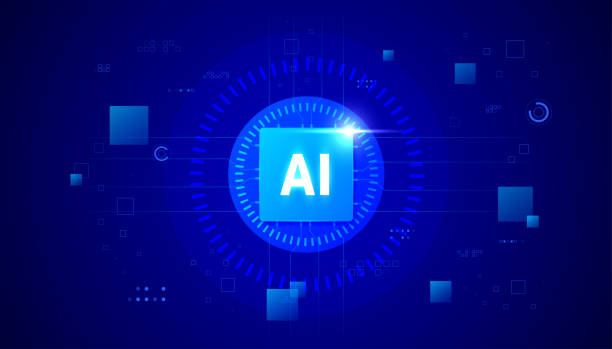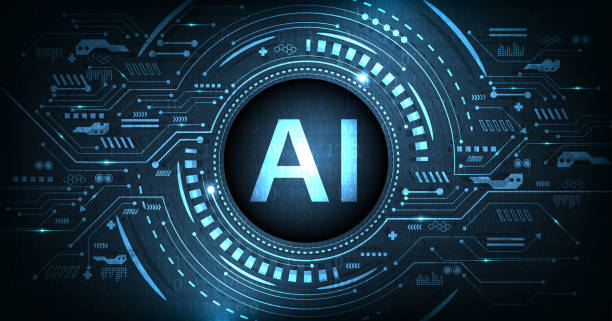What is Artificial Intelligence and Why Does it Matter?
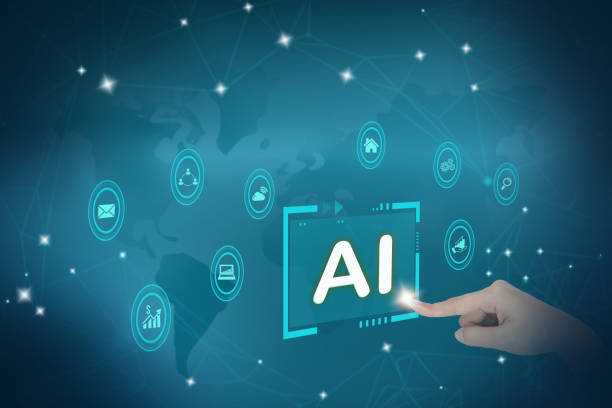
Artificial Intelligence (AI) is a branch of computer science that deals with building machines capable of performing tasks that usually require human intelligence.
This includes learning, reasoning, problem-solving, language comprehension, and machine vision.
The importance of #ArtificialIntelligence is increasing day by day, as it can transform various industries and significantly increase efficiency and productivity.
From automating repetitive processes to analyzing complex data, AI can help humans make better decisions and perform their tasks with greater speed and accuracy.
IBM also has extensive activities in this field.
These developments paint a bright picture for the future of AI jobs.
In fact, a deeper understanding of artificial intelligence and its applications will be key to success in many future career fields.
Is your company’s website as professional and reliable as it should be? Create an online presence that reflects your credibility and attracts more customers with specialized corporate website design by Rasaweb.
✅ Build a powerful and professional image of your brand
✅ Convert visitors into real customers
⚡ Get a free consultation now!
The Impact of Artificial Intelligence on the Job Market
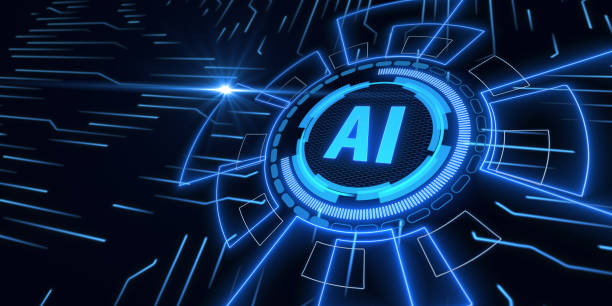
The impact of artificial intelligence on the job market is a complex and multifaceted issue.
On one hand, automation resulting from AI can lead to the replacement of some jobs, especially those involving repetitive and routine tasks.
On the other hand, artificial intelligence creates new job opportunities that did not exist before.
These opportunities often lie in areas such as the development and maintenance of AI systems, data analysis, and consulting on AI strategies.
McKinsey has conducted comprehensive studies on this matter.
In addition, artificial intelligence can increase workforce productivity and help people be more effective in their jobs.
This in turn can lead to increased wages and improved working conditions.
Therefore, the future of AI jobs not only means the loss of some jobs, but also the creation of new opportunities and the transformation of existing jobs.
Jobs at Risk and Growing Jobs
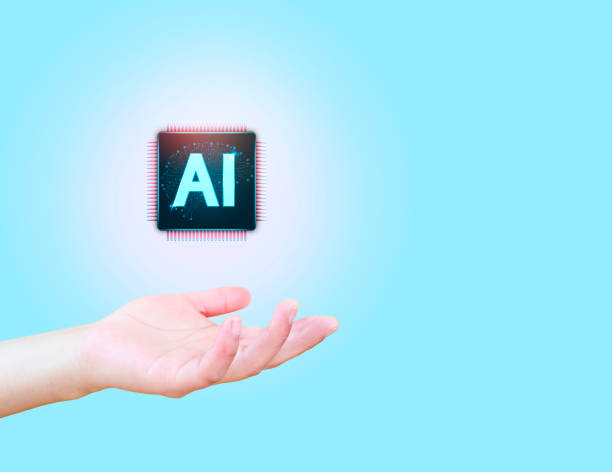
Jobs at risk from artificial intelligence typically include jobs that are heavily reliant on repetitive and routine tasks, such as telephone operators, production line workers, and simple accountants.
However, jobs that require high levels of creativity, critical thinking, and communication skills are less at risk.
Growing jobs in the field of artificial intelligence include data scientists, machine learning engineers, AI cybersecurity specialists, and AI strategy consultants.
In addition, jobs that require a combination of technical and human skills, such as doctors, teachers, and managers, will also experience significant growth.
This shows that the future of AI jobs requires a combination of technical expertise and soft skills.
| Jobs at Risk | Description |
|---|---|
| Telephone Operators | Due to chatbots and automated response systems |
| Production Line Workers | Due to robots and industrial automation |
| Simple Accountants | Due to intelligent accounting software |
Skills Needed to Succeed in the Age of Artificial Intelligence
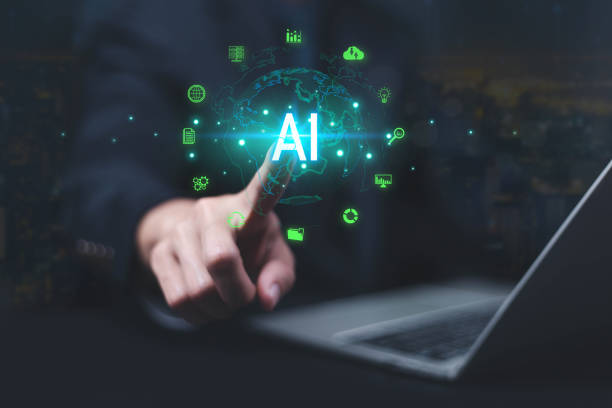
To succeed in the age of artificial intelligence, individuals need to acquire new skills and upgrade their existing skills.
This includes technical skills such as programming, data analysis, and machine learning, as well as soft skills such as creativity, critical thinking, problem-solving, and communication.
World Economic Forum has emphasized the importance of these skills in its reports.
In addition, the ability to learn continuously and adapt to rapid technological changes is also very important.
The future of AI jobs belongs to people who are able to combine their technical knowledge and human skills to solve complex problems and create added value.
Does your current website create the trust that potential customers should have in your business? If the answer is no, it’s time to have a professional and impactful corporate website with Rasaweb.
✅ Completely custom design tailored to your brand identity
✅ Increase lead generation and credibility of your business in the eyes of customers⚡ Contact us for a free consultation!
The Role of Education in Preparing the Future Workforce
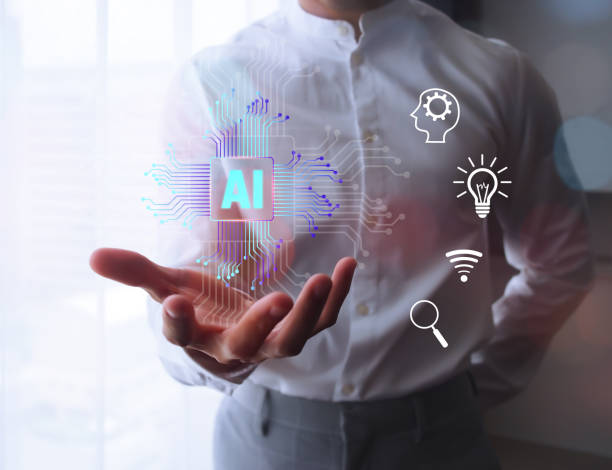
Education plays a vital role in preparing the future workforce to face the challenges and opportunities arising from artificial intelligence.
Education systems should focus on developing the technical and soft skills needed to succeed in the age of AI.
This includes teaching programming, data analysis, critical thinking, and problem-solving.
In addition, education should help people learn how to use artificial intelligence effectively and responsibly.
This means understanding the ethics and social implications of artificial intelligence.
The future of AI jobs depends largely on the ability of education systems to adapt to the new needs of the job market.
Industries Most Impacted by Artificial Intelligence

Artificial intelligence is already having a significant impact on many industries, and this impact is expected to increase in the future.
Some of the industries most impacted by artificial intelligence include healthcare (disease diagnosis, drug development), finance (fraud detection, risk management), manufacturing (automation of production lines, quality control), transportation (self-driving cars, traffic management), and customer service (chatbots, automated support).
In each of these industries, artificial intelligence can increase productivity, reduce costs, and improve the quality of products and services.
Therefore, the future of AI jobs in these industries is very bright and prosperous.
Ethical Challenges and Opportunities of Artificial Intelligence
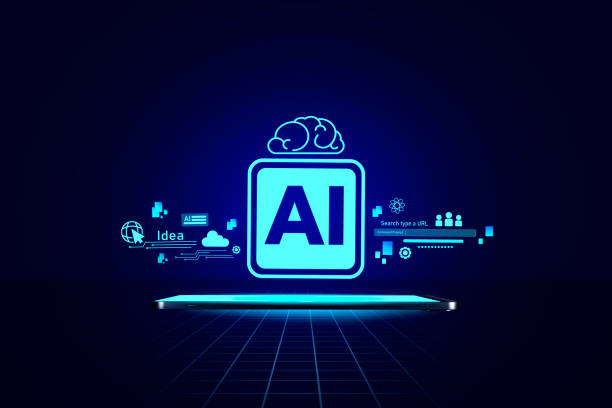
Artificial intelligence, along with the many opportunities it offers, also presents important ethical challenges.
These challenges include algorithmic bias (where algorithms make decisions that are unfair or discriminatory), privacy (where personal data is collected and used without individuals’ consent), and accountability (where it is unclear who is responsible for the negative consequences of AI decisions).
To address these challenges, it is necessary to establish strong ethical principles for the development and use of artificial intelligence.
These principles should include transparency, fairness, accountability, and respect for privacy.
The future of AI jobs depends not only on technical expertise, but also on a deep understanding of ethical issues.
| Ethical Challenge | Description |
|---|---|
| Algorithmic Bias | Unfair or discriminatory decisions by algorithms |
| Privacy | Collection and use of personal data without consent |
| Accountability | Lack of clear responsibility for negative consequences |
Strategies for Adapting to Job Market Changes Caused by Artificial Intelligence
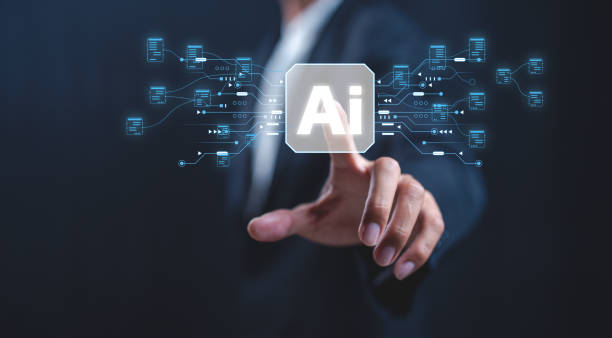
To adapt to the job market changes caused by artificial intelligence, individuals and organizations must adopt specific strategies.
This includes investing in education and skills development, creating a culture of continuous learning, and collaborating with other stakeholders (such as universities, companies, and government) to develop new education and career programs.
In addition, individuals should be flexible and prepared to change, and seek new opportunities in areas where artificial intelligence is growing.
The future of AI jobs belongs to people who are able to adapt quickly to change and learn new skills.
Are you losing business opportunities because of an outdated website? Solve the problem of not attracting potential customers through your website forever with Rasaweb!
✅ Attract more high-quality leads
✅ Increase brand credibility in the eyes of customers
⚡ Get a free corporate website design consultation
A Look at the Future Ahead in the Field of Artificial Intelligence
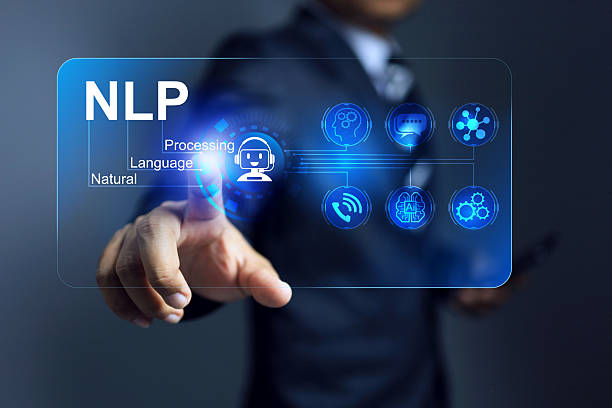
The future of artificial intelligence is very exciting and full of potential.
Artificial intelligence is expected to become increasingly powerful and complex in the coming years, and its impact on our lives will increase.
From self-driving cars and virtual assistants to disease diagnosis and drug development, artificial intelligence can help solve many of the world’s greatest challenges.
However, to realize this potential, we must use artificial intelligence responsibly and ethically, and ensure that its benefits are widely distributed.
The future of AI jobs is bright, but requires a commitment to learning, adaptation, and ethics.
Recommendations for Graduates and Job Seekers

For graduates and job seekers looking for a career in artificial intelligence, there are a few important recommendations.
First, focus on developing the technical and soft skills needed to succeed in this field.
This includes learning programming, data analysis, critical thinking, and problem-solving.
Second, look for opportunities to gain practical experience, such as internships, research projects, and participation in hackathons.
Third, connect with professionals in this field and seek their advice.
LinkedIn is a great tool for this.
Fourth, be flexible and prepared to learn continuously.
The future of AI jobs belongs to people who are eager to learn and adapt to change.
Frequently Asked Questions
| Question | Answer |
|---|---|
| What impact will artificial intelligence have on the future job market? | Artificial intelligence will automate repetitive jobs, but at the same time it will create new and more complex jobs in areas such as development, maintenance and training of artificial intelligence systems. |
| Which jobs are most at risk of being replaced by artificial intelligence? | Jobs that involve repetitive, rule-based tasks with low need for creativity or emotional intelligence, such as some manufacturing, data entry and simple customer service jobs, are most at risk. |
| What skills are essential to succeed in the future of work with artificial intelligence? | Skills such as critical thinking, complex problem solving, creativity, emotional intelligence, data literacy, the ability to work with artificial intelligence, and lifelong learning are of great importance. |
| Will artificial intelligence cause widespread unemployment? | Some jobs will be lost, but history has shown that new technologies, instead of widespread unemployment, reshape the job market and create new jobs. The need for adaptation and retraining is important. |
| What new job opportunities are emerging with the advent of artificial intelligence? | Jobs such as machine learning engineer, data scientist, artificial intelligence ethicist, human-AI interaction designer, and digital transformation consultant are among the new opportunities. |
| What is the role of education in preparing for the future of work with artificial intelligence? | Education should focus on developing soft skills, computational thinking, digital literacy, and the ability to learn continuously to prepare individuals for future changes. |
| How can I prepare myself for the job market changes caused by artificial intelligence? | You can prepare yourself by learning new skills related to artificial intelligence and data, strengthening soft skills, developing critical thinking and creativity, and getting into the habit of lifelong learning. |
| Will artificial intelligence ethics become an important career field? | Yes, given the growing concerns about biases, privacy, and automated decision-making of artificial intelligence, the role of artificial intelligence ethics experts will be critical to ensuring its responsible development. |
| How important is human-artificial intelligence collaboration in the future of work? | Human-artificial intelligence collaboration, rather than competition, shapes the future of the job market. Artificial intelligence can be a tool to increase productivity and focus humans on more complex and creative tasks. |
| Which industries will be most affected by artificial intelligence? | Almost all industries will be affected, but areas such as healthcare, finance, transportation, manufacturing, education, and customer service are at the forefront of adoption and transformation by artificial intelligence. |
And other services of Rasa Web advertising agency in the field of advertising
Intelligent digital branding: Professional optimization to improve SEO ranking using real data.
Intelligent content strategy: A combination of creativity and technology to analyze customer behavior by using real data.
Intelligent UI/UX: An effective tool for digital branding by optimizing key pages.
Intelligent UI/UX: A dedicated service for growing customer behavior analysis based on marketing automation.
Intelligent marketing automation: Designed for businesses looking to attract customers through a SEO-oriented content strategy.
And more than hundreds of other services in the field of internet advertising, advertising consulting and organizational solutions
Internet advertising | Advertising strategy | Advertorial report
Resources
Future of AI Jobs
,AI Job Opportunities in Iran
,What jobs will AI eliminate?
,What is artificial intelligence and how does it work?
? Are you looking to boost your business in the digital world? Rasaweb Digital Marketing Agency accompanies you on the path of growth and success by providing comprehensive and innovative solutions, including multilingual website design.
📍 Tehran, Mirdamad Street, next to the Central Bank, South Kazerun Alley, Ramin Alley No. 6
“`

